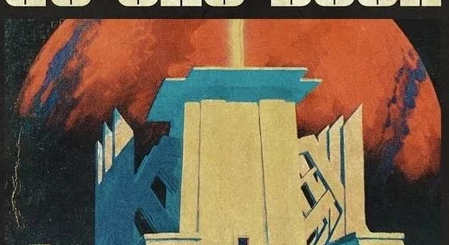On the Other Side by The Strokes Lyrics Meaning – Dissecting The Maze of Modern Malaise
Lyrics
Of everyone
I know
Of everyone
I see
On the street
And on TV, yeah
On the other side
On the other side
Nobody’s waitin’ for me
On the other side
I hate them all
I hate them all
I hate myself
For hating them
So I’ll drink some more
I’ll love them all
I’ll drink even more
I’ll hate them even more than I did before
On the other side
On the other side
Nobody’s waitin’ for me
On the other side
(Here we go)
I remember when you came
You taught me how to sing
Now it seems so far away
You taught me how to sing
I’m tired
Of being
So judgmental
Of everyone
I will not go to sleep
I will train my eyes to see
That my mind is as blind
As a branch on a tree
On the other side
On the other side
I know what’s waiting for me
On the other side
On the other side
On the other side
I know you’re waiting for me
On the other side
Amidst the bustling panorama of modern rock, The Strokes have mastered the art of painting urban ennui with melodious strokes. Their track ‘On the Other Side’ from the album ‘First Impressions of Earth’ stands out as a poignant ode to the spiritual desolation that permeates contemporary life. This piece dips beyond the surface of the lyrics to unearth the throbbing heart of existential discontent that the song encapsulates.
Through a fusion of Julian Casablancas’s vulnerably raw vocals and the gritty alignment of instruments, the song becomes a vehicle for a generation’s desperate sigh. It captures a liminal space where disconnection and the search for something beyond the banality of everyday existence blend into an anthemic cry for meaning.
The Tired Soul’s Anthem: A Reluctant Lullaby to Ourselves
The repetitive chorus of weariness echoes like a mantra throughout ‘On the Other Side,’ creating an almost hypnotic spiral of disenchantment. The opening lines, delivered in a monotone inflection, mirror the robotic existence of those who feel as though they’re running on autopilot. The Strokes are not just singing about physical and emotional exhaustion, but rather they are chronicling the numbing sensation that comes from a deep-rooted disillusionment with society’s façade.
Casablancas doesn’t just articulate his own fatigue, he encapsulates a collective sigh, a universal malaise that today’s generation experiences. The imagery of seeing the same faces, repeated on the streets and on screens, quietly interrogates the authenticity of our connections. Are they mere apparitions on the other side of reality, the other side of our longing for something genuine?
Navigating the Seas of Cynicism
‘I hate them all, I hate them all, I hate myself,’ intones Casablancas, encapsulating a sea of self-conflict with each wave of loathing and self-contempt. This visceral admission is less about self-pity, more a reflection of the internalized resentment that stems from acknowledging one’s participation in a reality that feels hollow.
Yet, it’s in the very act of singing ‘I’ll drink some more, I’ll love them all,’ and its subsequent reversal of sentiment that we see an attempt to numb the pain and embrace the humanity of those we disdain. This paradox presents the struggle to reconcile the urge to disconnect with the inherent need for connection, no matter how flawed or intoxicating it may be.
The Echo of a Distant Memory: Love as Redemption
With a soft temporal shift, ‘I remember when you came, You taught me how to sing,’ the song breathes a momentary respite from self-flagellation. In these lines lies the crux of hope—the remembrance of love as a catalyst for change. It’s a look back at a time when vulnerability wasn’t equated with weakness, when learning to express oneself was tantamount to discovering a new vista of existence.
But as the memory fades back into the gritty present, so too does the ephemeral sense of lightness. The contrast between the present desolation and the past warmth only sharpens the sense of yearning for a connection that’s immune to the corrosion of the cynical world.
The Catharsis of Self-Awareness: A Blade on the Tree of Existence
There is a stark turning point when the singer professes a desire to ‘train my eyes to see,’ recognizing the judgmental tendencies as a reflection of his own mind’s limitations. It is a profound admission that the blind judgments we cast are but leaves on the proverbial tree of thought — able to be shed and renewed.
The declaration that he will not sleep is a metaphorical awakening, a pledge to remain vigilant against the sleep of reason that breeds monsters of indifference. In an act of self-awareness, Casablancas pledges to redefine his perspective, to cleanse his sight so that he might see himself and others in a new light.
Crossing the Threshold: The Hidden Meaning Behind the Chorus
The repeated phrase, ‘On the other side,’ takes the listener on a journey through ambiguity and despair, before transforming into a kind of hopeful realization. Initially, the ‘other side’ is empty—’nobody’s waitin’ for me’ rings as an acceptance of existential isolation. However, as the song progresses, ‘I know you’re waiting for me’ emerges as the final chant, instilling the notion of faith in love or kinship that exists outside the painful cycle of the mundane.
The duality of ‘the other side’ then becomes clear: it represents the barrier between our current self and the self we yearn to be. It acknowledges the potential for transcendence, for there is always another side to cross into—whether in life or afterlife, in memory or hope. This subtle shift in the song’s climactic moments is an invitation to believe in redemption through understanding, companionship, or the power of love itself.








